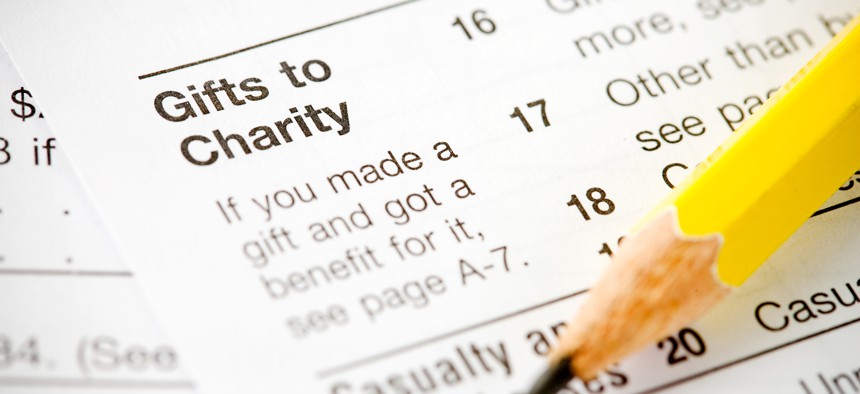Senators make case for expanded charitable tax deduction

Pencil sits on tax form showing charitable deduction. Shutterstock
A bipartisan group of U.S. senators is leading the charge to further expand the charitable tax deduction in upcoming coronavirus relief bills as charities struggle amid the COVID-19 epidemic.
The Coronavirus Aid, Relief, and Economic Security Act signed into law in late March lets people deduct up to $300 on their charitable donations made during this year, regardless of whether they itemize their taxes. Critics have argued that it isn’t a sufficient incentive to spur giving because of restrictions on what donations count toward the deduction – and it may not be a large enough dollar amount to inspire new donors.
The latest proposal pushed forward by lawmakers like Sen. Mike Lee and Sen. Amy Klobuchar would allow single people to deduct up to $4,000 and married couples to deduct up to $8,000.
This effort is also in response to changes made in the federal 2017 tax law, which led to declines in people itemizing their deductions. About 10% of people do so now; researchers say approximately one-fourth of Americans did before the law was passed.
“We ought to value the charitable contributions of every American,” said Sen. Chris Coons during the National Council of Nonprofits’ virtual event. “It’s also ineffective. If more Americans were acknowledged for and supported in their charitable deductions, there would be more giving.”
NEXT STORY: Leader to Leader: Emma Jordan-Simpson